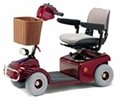
Elderly Insomnia
Causes, Treatment and More
Elderly insomnia is a common complaint and the automatic response is often to take medication. However, there is no safe long term medication to manage sleep in the elderly.
Medication should be the last resort in addressing sleep issues in the elderly. Other remedies such as exercise, maintaining a bedtime sleep routine and not consuming alcohol or caffeine before bedtime.
Insomnia in the elderly is a common complaint, both short term and long term (chronic). It is important to seek professional medical assistance to resolve the issue as it can lead to other health problems.
Sleep is an important aspect of maintaining a healthy lifestyle as our bodies need time to rest and recover.
A lack of sleep can also cause difficulties that are similar to symptoms of Alzheimer's disease: decreased response time, increased falls risk, decreased memory, attention and cognitive performance.
Changes in the sleep cycle that occur with age are one cause. Disturbed sleep may also be a symptom that reflects a more serious underlying medical concern. It may also accompany physical and emotional issues that are correctable or will resolve with time.
Causes
Insomnia is often a symptom of another health condition. It's important the health care professional looks for the underlying cause of the sleep problem and treats that condition.
The first task is usually to determine the duration of the insomnia: Short term (less than 3 weeks) or long-term (more than 3 weeks) problem. Then, determining the cause of the insomnia and treating the problem if possible.
If the problem remains, a non-pharmacologic treatment should be implemented.
Short-term elderly insomnia may be caused by acute stress, pain, environmental changes, medications, stimulants, or withdrawal of sedatives.
If the cause cannot be resolved with this method, doctors will typically treat with medication on a short-term basis.
Long-term elderly insomnia is more common. There are a wide variety of causes including:
- Psychiatric disorders, such as conditioned insomnia
- Alcohol and substance abuse
- Depression and anxiety
- Chronic pain
- Nocturia
- Many medical disorders such as congestive heart failure, hyperthyroidism, rheumatologic diseases, dementia, Parkinson's disease, chronic obstructive pulmonary disease (COPD), asthma, and gastroesophageal reflux disease (GERD).
The senior should be evaluated for these psychiatric and medical causes.
Depression is a common cause of elderly insomnia (most often resulting in early awakening) and is best treated with drugs that have sedative side effects.
Anxiety is the most common psychiatric common cause of elderly insomnia. These seniors experience difficulty falling asleep.
Treating Insomnia: Without Medication
The first line of action for treating elderly insomnia should be non-pharmacological methods.
These methods include:
- Sleep hygiene must be taught to the senior and his or her family.
- Going to bed and waking up at the same time every day.
- Help establish an evening routine for the senior to help them go to sleep.
- Instruct the senior to avoid long periods of wakefulness in bed, and to not use the bed except for sleep and sex.
- Instruct the patient to avoid napping.
- Explain that exercise is important, but should be avoided close to bedtime.
- Explain that caffeine, alcohol, and smoking should be avoided.
- Stress management and relaxation therapy can also be helpful, especially if the senior is a worrier.
- Many herbal treatments are also available although there is not strong evidence to support effectiveness.
Treating Insomnia: With Medication
When medications are needed - after non-pharmacological options have been tried - those that have FDA indication for insomnia include barbiturates (pentobarbital, phenobarbital, secobarbital), benzodiazepines (quazepam [Doral], temazepam [Restoril], triazolam [Halcion]), zaleplon (Sonata), and zolpidem (Ambien).
Barbiturates: are rarely used for elderly insomnia because they are dangerous, habit-forming, and have many CNS adverse effects including agitation, confusion, hyperkinesia, ataxia, nightmares, nervousness, hallucination, dizziness, and thinking abnormality.
Benzodiazepines: are commonly used with adults. However, they are dangerous in the elderly. Elderly who take benzodiazepines are at an increased risk of serious adverse effects including over sedation, dizziness, weakness, unsteadiness, increased falls, mental confusion, dependence with withdrawal symptoms, lack of recall of events while on medication, amnesia, memory impairment, disorientation, nausea, change in appetite, headache, sleep disturbance, and agitation.
Zolpidem is a newer and safer treatment for short-term insomnia and should be used for 1-month-maximum. However, many seniors end up taking it for years. It can cause depression, behavioural changes, decreased respiratory function, dizziness, daytime drowsiness, drugged feelings, amnesia, diarrhea, headache, and nausea.
Zaleplon is the newest drug for short-term treatment of insomnia. It is very short-acting (2-4 hours). Zaleplon's adverse effects include drowsiness, dizziness, hallucination, tremor, vertigo, amnesia, paresthesia, depressed respiratory function, anorexia, and depersonalization. Zaleplon is useful for people who have an occasional problem falling asleep or waking up during the night, and for people who travel through time zones. However, these are not the usual complaints of the elderly.
Antihistamines are commonly used as treatment for elderly insomnia, though this is not an FDA indication. Diphenhydramine (Benadryl) is the active ingredient in over-the-counter sleep preparations such as Tylenol PM and others. Its use in the treatment of insomnia in the elderly is not recommended.
Return to Elderly Health Problems
Return to Caring for Aging Parents






New! Comments
Have your say about what you just read! Leave me a comment in the box below.